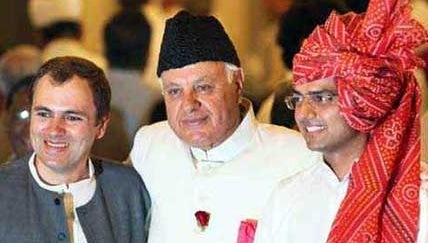Newspaper Article 20/01/2015
In an international politics where states exist in anarchy and prefer to maximize their security have two basic strategic options, i.e., defensive and offensive. “Offensive-defense” theory also called “security dilemma theory”, given by Stephen William Van Evera, argues that international conflict and war are more likely when offense has the advantage over defense, while peace and cooperation are more probable when defense has the advantage over offense. It argues that in a world where there is an offensive advantage, expansionist grand strategies will be more common, states will adopt offensive military doctrines, arms races will emerge, foreign policies will be confrontational, crises will be frequent, states will shroud their capabilities in secrecy to conceal military & economic vulnerabilities, and preemptive and preventive strikes will become more likely. States that follow defensive strategy attempt to defend their territory and resources they control and don’t seek to expand territory. The theory also goes on to say and suggests that states that adopt offensive strategies would tend to succeed in international politics, whereas those states that adopt defensive strategies would tend to fail.
“Imbalance” would be a more appropriate term when describing India-Pakistan equation. In straight numerical terms of population, economics, military manpower and equipment India overtakes Pakistan. What has to be understood from the outset is that the two countries have very different military aspirations. India sees itself as a rising regional and extra-regional power and sees military power as one element in this process. As any aspiring regional player does, India looks around for potential partners, i.e., US and Russia and potential enemies, i.e., China and Pakistan. Pakistan is in an altogether different position. It seeks to provide itself with the military means to deter any offense from India.
Having said this, it can be said that though Indian shift from defensive-defense to offensive-defense has been gradual but constant and the following factors clearly manifest this shift over the period of time. India’s failed policy of cold start and threats of surgical strikes inside Pakistan hint to offensive strategy. Soon after the Abbottabad operation, the Indian chief of air staff, Air Chief Marshal P. V. Naik, gave the statement that the Indian air force has the capability of carrying out surgical strikes against the alleged Mumbai attackers hiding in Pakistan. The Pakistan-specific Indian Cold Start Doctrine (CSD) has the potential to put the entire region into a quagmire of volatility and dismay. The threat of deterrence failure would increase if India operationalised its CSD as it has wide range of implications for South Asia as a region.
India has maintained its position as the world’s leading arms importer for the third year in a row, ahead of China. According to latest SIPRI estimates, the volume of Indian imports of major weapons rose by 111 per cent between 2004–08 and 2009–13, and its share of the volume of international arms imports increased from 7 to 14 per cent. The recent violations of working boundary and the line of control (LoC) by India clearly gave Pakistan the signal of military and economic might India possesses at present. Indo-US cooperation in high-tech defense equipments has raised concerns in Pakistan which compels Pakistan to look for advanced weapon technology. Such compulsions may create a path towards the destabilization of strategic balance in the region and for this US is the spoiler.
The BJP in its manifesto pledged to “study in detail India’s nuclear doctrine, revise, update, to make it relevant to challenges of current times”. It wanted to review the nuclear doctrine, whose two main pillars were: (a) no first-use commitment and (b) building a credible but minimum nuclear arsenal. India has problems with almost all SAARC countries especially Pakistan, Bangladesh and Nepal. India has aligned itself with the US in its policy of “Asia re-balancing” focused at China. This shows Indian aggressive-cum-confrontational foreign policy. In the face of India’s growing military arsenal coupled with offensive strategy, Pakistan is seeking to modernise its forces. Therefore, India’s changing posture from defensive-defense to offensive-defence is visible and it would continue in the future but in an atmosphere of nuclear and missile technology Indian offensive strategy is bound to suffer in context of Indo-Pak equation as qualifying weapons being defensive or offensive is difficult.
Disclaimer: Views expressed are of the writer and are not necessarily reflective of IPRI policy.
Carried by: Pakistan Observer, January 15, 2015.


